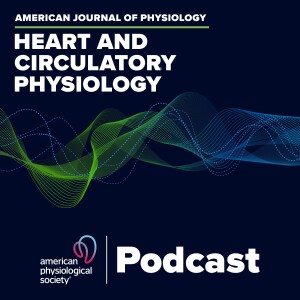
How does cancer cachexia directly affect the heart? Listen as Deputy Editor Merry Lindsey (University of Mississippi Medical Center) tackles this question and more as she interviews lead author Loren Wold (The Ohio State University) and content expert Hemal Patel (VA San Diego Healthcare System, University of California San Diego) about the insightful study by Devine et al on cancer-induced cachexia and its effects on cardiac muscle structure and physiology. Using a proteomics approach, Wold and colleagues investigated how hypoxia inducible factor-1alpha served as a sensor for oxygen handling in the heart during cancer cachexia, a global hypoxic event. What strain and sex -dependent effects of tumor formation did Wold and co-authors observe in their model of cancer cachexia? Why was it significant that c-kit was elevated in the left ventricle of the tumor-bearing mice? Does lipid accumulation in the cachexia model bear resemblance to accelerated aging? Many questions, many answers. Listen now.
Raymond D. Devine, Sabahattin Bicer, Peter J. Reiser, Loren E. Wold Increased hypoxia-inducible factor-1α in striated muscle of tumor-bearing mice Am J Physiol Heart Circ Physiol, published June 1, 2017. DOI: 10.1152/ajpheart.00090.2016
More Episodes
 2020-10-16
2020-10-16
 242
242
 2020-09-29
2020-09-29
 255
255
 2020-09-25
2020-09-25
 212
212
 2020-09-15
2020-09-15
 381
381
 2020-09-04
2020-09-04
 334
334
 2020-08-31
2020-08-31
 368
368
 2020-08-14
2020-08-14
 377
377
 2020-07-23
2020-07-23
 277
277
 2020-06-15
2020-06-15
 281
281
 2020-05-29
2020-05-29
 318
318
 2020-05-25
2020-05-25
 333
333
 2020-05-22
2020-05-22
 359
359
 2020-05-22
2020-05-22
 178
178
 2020-05-07
2020-05-07
 287
287
 2020-04-30
2020-04-30
 708
708
 2020-04-27
2020-04-27
 234
234
 2020-02-11
2020-02-11
 415
415
 2019-12-20
2019-12-20
 666
666
 2019-12-11
2019-12-11
 355
355
Create your
podcast in
minutes
- Full-featured podcast site
- Unlimited storage and bandwidth
- Comprehensive podcast stats
- Distribute to Apple Podcasts, Spotify, and more
- Make money with your podcast
It is Free
- Privacy Policy
- Cookie Policy
- Terms of Use
- Consent Preferences
- Copyright © 2015-2024 Podbean.com





